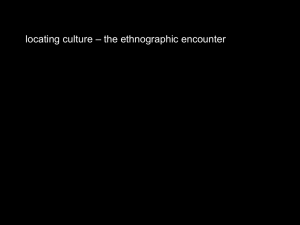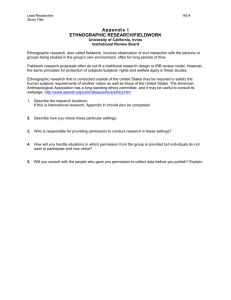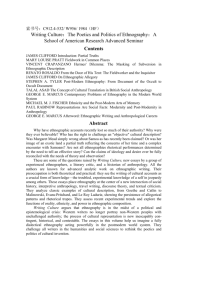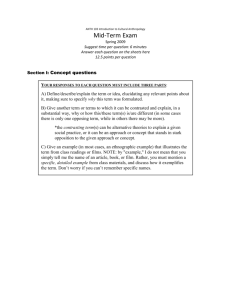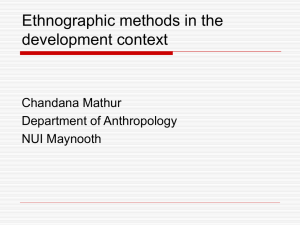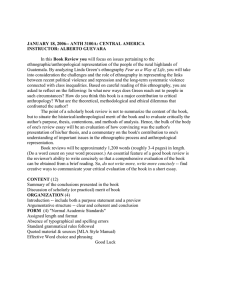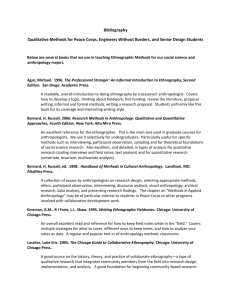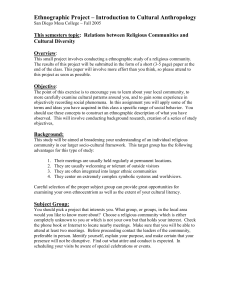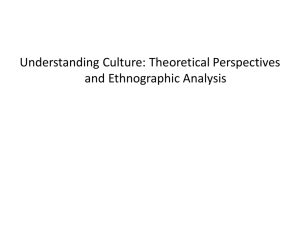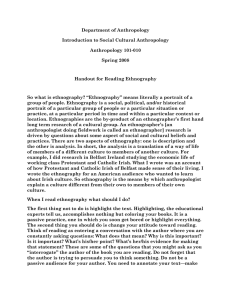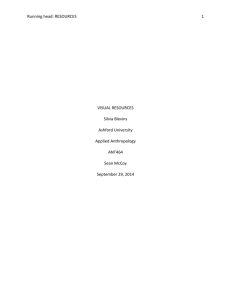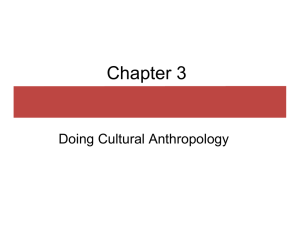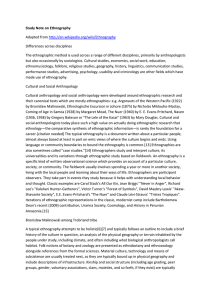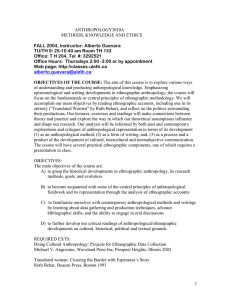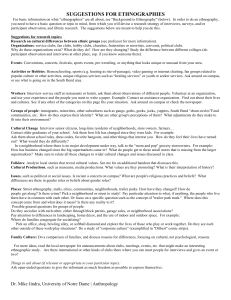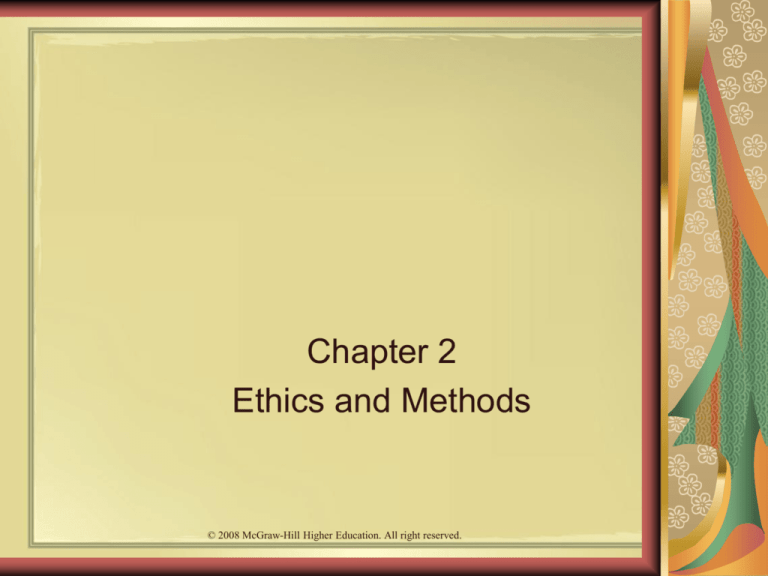
Chapter 2
Ethics and Methods
© 2008 McGraw-Hill Higher Education. All right reserved.
Anthropological Approach
Holistic
perspective
Cultural relativity
Cross-cultural
comparisons
Terms for Chapter 2
Ethnocentric
Adaptation
Ethnography
Ethnology
Emic – insiders view
Etic – outsiders view
© 2008 McGraw-Hill Higher Education. All right reserved.
Ethics and Anthropology
American Anthropological Association
Code of Ethics
Informed consent
Collaborative relationships
Inclusion of host country colleagues in
planning, funding requests, and
dissemination of results
“Giving something back”
Western Science Methods
Analysis
Inductive
Deductive
Scientific Method
Data
Hypothesis
Theory/Law
Publish
Methods
Empirical observations
Objective
Subjective
Methods in Cultural
Anthropology
Two brief categories of investigation
Ethnographic
Comparative
Each one has two parts
Present
Recent past
Ethnographic Methods
Fieldwork
Deals with the present time
Primary method of collecting data
Three main methods for fieldwork
Participant Observation
Interview
Media
Ethnohistory
Deals with
people in
recent past
Get data from
the textual
sources
Comparative Methods
Cross-cultural comparisons
Controlled Historical Comparisons
Cultural Anthropology and
Sociology
Share interest in social relations,
organization, and behavior
Sociology traditionally focused on large,
industrialized Western nations
Anthropology traditionally focused on small,
nonliterate populations
Ethnography: Anthropology’s
Distinctive Strategy
Firsthand, personal study of local
cultural settings
Extended period of time in a given
society or community
Ethnographic Techniques
Observation and participant observation
Ethnographic Techniques
Conversation, interviewing, and
interview schedules
Ethnographic Techniques
The genealogical method
Key cultural consultants (key
informants)
Life histories
Ethnographic Techniques
Local beliefs and perceptions versus
those of the ethnographer
Emic (native-oriented) approach
Etic (science-oriented) approach
Types of Ethnography
Problem-oriented Ethnography
Most ethnographers investigate a
specific problem
Collection of data on range of variables
Longitudinal Research
Team Research
Survey Research
Becoming more popular
Impersonal
Limitations
Race
Gender
Culture Shock
What is culture shock?
How could anthropologists get it?



